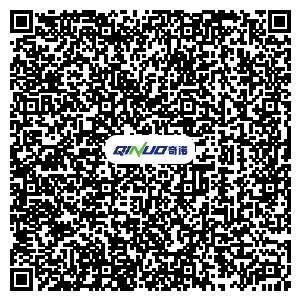Garage door remote controls have become an indispensable convenience in modern households, providing effortless access to garage spaces with the click of a button. However, ensuring the durability and longevity of these remote controls, especially in harsh environmental conditions, requires meticulous engineering and quality assurance measures from manufacturers. From extreme temperatures to moisture and physical wear, various factors pose challenges to the resilience of garage door remotes. Let's explore how manufacturers address these challenges to deliver reliable and long-lasting products.

1. Robust Enclosure Design: Manufacturers prioritize the design of rugged enclosures to protect remote control circuitry from environmental elements. High-impact plastic or metal casings are commonly used to shield internal components from physical damage caused by drops, impacts, or abrasions. These enclosures are often designed to meet specific ingress protection (IP) ratings, indicating their resistance to dust, water, and other external contaminants.
2. Sealing Against Moisture: Moisture ingress poses a significant risk to electronic components, leading to corrosion, short circuits, and malfunction. Manufacturers employ various techniques to seal garage door remote controls against moisture penetration. This may include gaskets, seals, or potting materials applied to critical areas such as seams, buttons, and battery compartments. Additionally, advanced waterproof coatings or encapsulation processes are utilized to provide an extra layer of protection.
3. Temperature Resilience: Garage environments can experience extreme temperatures, ranging from freezing cold in winter to scorching heat in summer. To ensure functionality under such conditions, manufacturers subject remote controls to rigorous temperature testing during development. Components are selected for their ability to withstand wide temperature ranges, while thermal management features such as heat sinks or ventilation channels may be incorporated to dissipate excess heat and prevent overheating.
4. Electromagnetic Interference (EMI) Shielding: Electronic devices, including garage door remotes, are susceptible to electromagnetic interference from nearby sources such as power lines, radio transmitters, or electrical appliances. To mitigate the effects of EMI, manufacturers integrate shielding measures into remote control circuitry. Conductive coatings, ferrite beads, or shielding enclosures are employed to suppress electromagnetic interference and maintain signal integrity.
5. Battery Efficiency and Management: Battery performance is critical to the reliable operation of garage door remotes. Manufacturers focus on optimizing power consumption through efficient circuit design and low-power standby modes. Additionally, advanced battery management systems may be implemented to monitor battery health, prevent overcharging or deep discharge, and provide timely low-battery warnings to users, ensuring uninterrupted functionality.
6. Quality Testing and Certification: Prior to market release, garage door remote controls undergo extensive quality testing to validate their performance and durability under simulated environmental conditions. Testing may include temperature cycling, humidity exposure, vibration testing, and ingress protection assessment. Compliance with industry standards and certifications, such as FCC (Federal Communications Commission) or CE (Conformité Européenne), further attests to the product's reliability and safety.
7. User Education and Maintenance Guidelines: Manufacturers often provide users with comprehensive guidelines for remote control usage and maintenance. This may include recommendations for battery replacement intervals, cleaning procedures, and storage practices to prolong the lifespan of the device. By empowering users with knowledge and best practices, manufacturers contribute to the overall longevity of garage door remote controls.
In conclusion, manufacturers employ a combination of robust design, materials selection, testing protocols, and user education initiatives to ensure the durability and longevity of garage door remote controls, even in harsh environmental conditions. By addressing challenges such as moisture ingress, temperature extremes, electromagnetic interference, and battery management, manufacturers deliver products that reliably provide convenient access to garage spaces, enhancing the overall user experience and satisfaction.

-
Office ViewQinuo Electronics Co., Ltd.was founded in 2009,it is a high-tech company that integrated R & D, manufacturing, sales and service for 15 years,which is mainly specialized in providing sensors of automatic door, control system of door and gate, car key remote, auto parts etc. The company currently has four independent brands: U-CONTROL, U-SENSORS, U-AUTOGATES and U-AUTOKEYS.
-
got questions? call us
+86 13960286508
-
fax :
+86 595 22901208 -
Email :
[email protected]
-
address
- No.991 Xingxiu Road,Taiwanese Investment Zone, Quanzhou, Fujian Province,P.R.China











